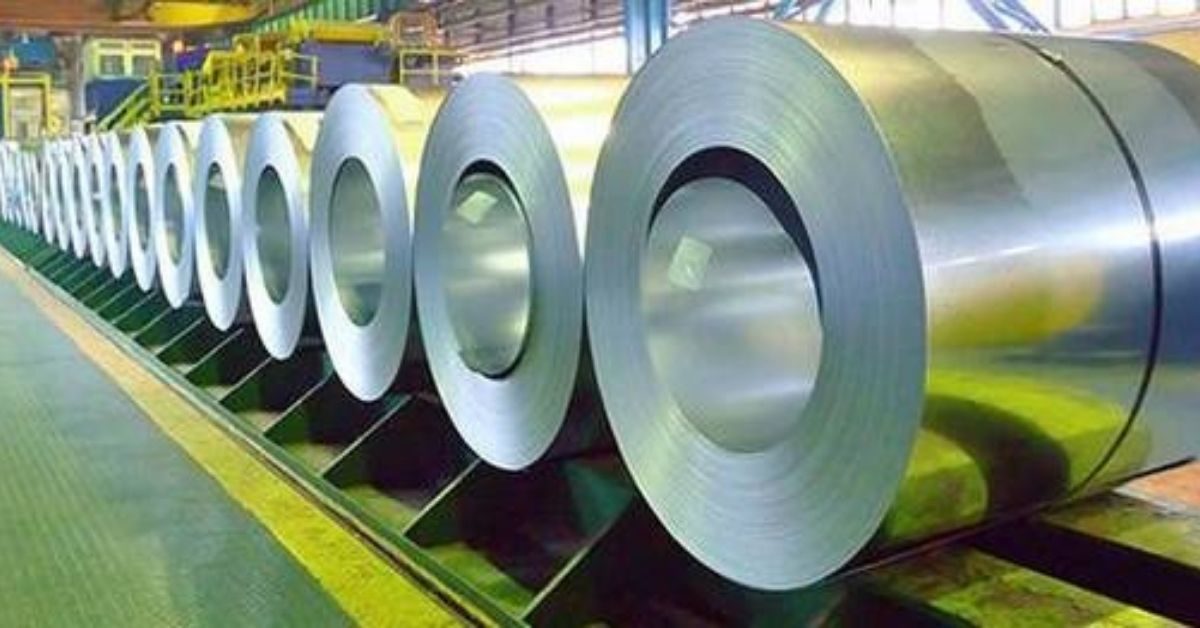Just when micro, small and medium enterprises (MSMEs) were eyeing a recovery from two consecutive waves of COVID-19, the soaring cost of steel, a key raw material, has delivered another blow, forcing many units to sell their products at a loss.
The steep hike in input costs is visible in the Wholesale Price Index (WPI)-based inflation which scaled to a record 12-year high of 14.23 percent in November pushed by high prices of fuel, metals, food products and mineral oils.
The index for inputs that go into making of steel climbed 50 percent in November 2021 from a year ago. The index for mild steel products such as hot-rolled and cold-rolled sheets and coils (HRC and CRC) was up about 40 percent, according to data released by the office of the economic adviser in the ministry of commerce and industry.
MSMEs selling at a loss
Narinder Bhamra, president, Fasteners Manufacturers Association of India, noted that steel prices have gone up to Rs 70,000-75,000 per tonne from Rs 35,000-40,000 per tonne over the past year. “Steel prices have increased massively. The market is not accepting the effect of the price hike, therefore a lot of MSMEs are now selling at losses,” said Bhamra.
He said that as a result, the working capital requirement of MSMEs has gone up by almost 70 percent, which in turn is forcing MSMEs to take loans.
Echoing his sentiment, S.C. Ralhan, president, Ludhiana Hand Tools Manufacturers Association, which represents about 400 MSMEs from the region, said, “The increase in the cost of steel is affecting MSMEs, which are already struggling because of the pandemic. The cost of steel has gone up by almost three times.”
The cost of HRC is at Rs 80,000 and CRC is Rs 65,000 per tonne. The prices were one third last year, Ralhan noted, adding that the steep hike in prices has forced MSMEs to take loans for survival while many others have shut shop.
Gurpargat Singh Kahlon, president, Auto Parts Manufacturers Association, noted that MSMEs are forced to sell at losses because they fear losing clients.
“MSMEs are in a fix because the market is not willing to accommodate the price change as orders and contracts are pre-booked. If we try to cancel the order now, it would mean that we would lose the customer,” Kahlon said.
According to the All India Council of Association of MSMEs (AICA) which represents 170 MSME associations, there has been an 82 percent increase in the price of steel plates from Rs 45 per kg in April 2020 to Rs 82 in October this year, while the price of mild steel scrap has surged by 81 percent to Rs 40 per kg over the same period.
Ramamurthy, member, AICA, noted that the sharp cost increase is making Indian MSME products more expensive and hence less attractive in overseas markets than those from other countries.
Government intervention
Amid the growing concerns of small industries on input prices, the government stepped in. At a meeting on December 9, Piyush Goyal and Narayan Tatu Rane, the commerce and MSME ministers met steel industry stakeholders and stressed the need for easier supply of the alloy at lower costs to MSMEs.
Some feel that is not enough. Bhamra said, “The government should come up with a steel regulator. The commerce minister has requested the steel companies to reduce prices and give relief to MSMEs but they will keep manipulating the price so there is an urgent need for a regulator.”
He added that steel manufacturers should extend the discount of Rs 3,000-4,000 per tonne that they have been offering to large companies which purchase in bulk to smaller players as well.
Vinod Vashisht, president, All India Steel Rerollers Association, welcomed the government’s intervention but he too termed it a temporary solution. “Steel prices are highly volatile so what is needed is that the government should come up with a system so that they become stable for a few weeks or months. That is the main reason why the MSMEs suffer,” said Vashisht.
In a statement on December 13, AICA suggested hedging of steel for MSMEs in order to provide protection against price escalation for a period. AICA further suggested that public sector undertakings (PSUs) be instructed to accept cancellation of orders from MSMEs without levying a penalty or blacklisting them as an event like the increase in steel prices is not within the control of the MSMEs.The industry body also wants steel PSUs to publish steel prices on a quarterly basis and maintain that level for three months and set aside 40 percent of their production for MSMEs.
Source : Money Control







